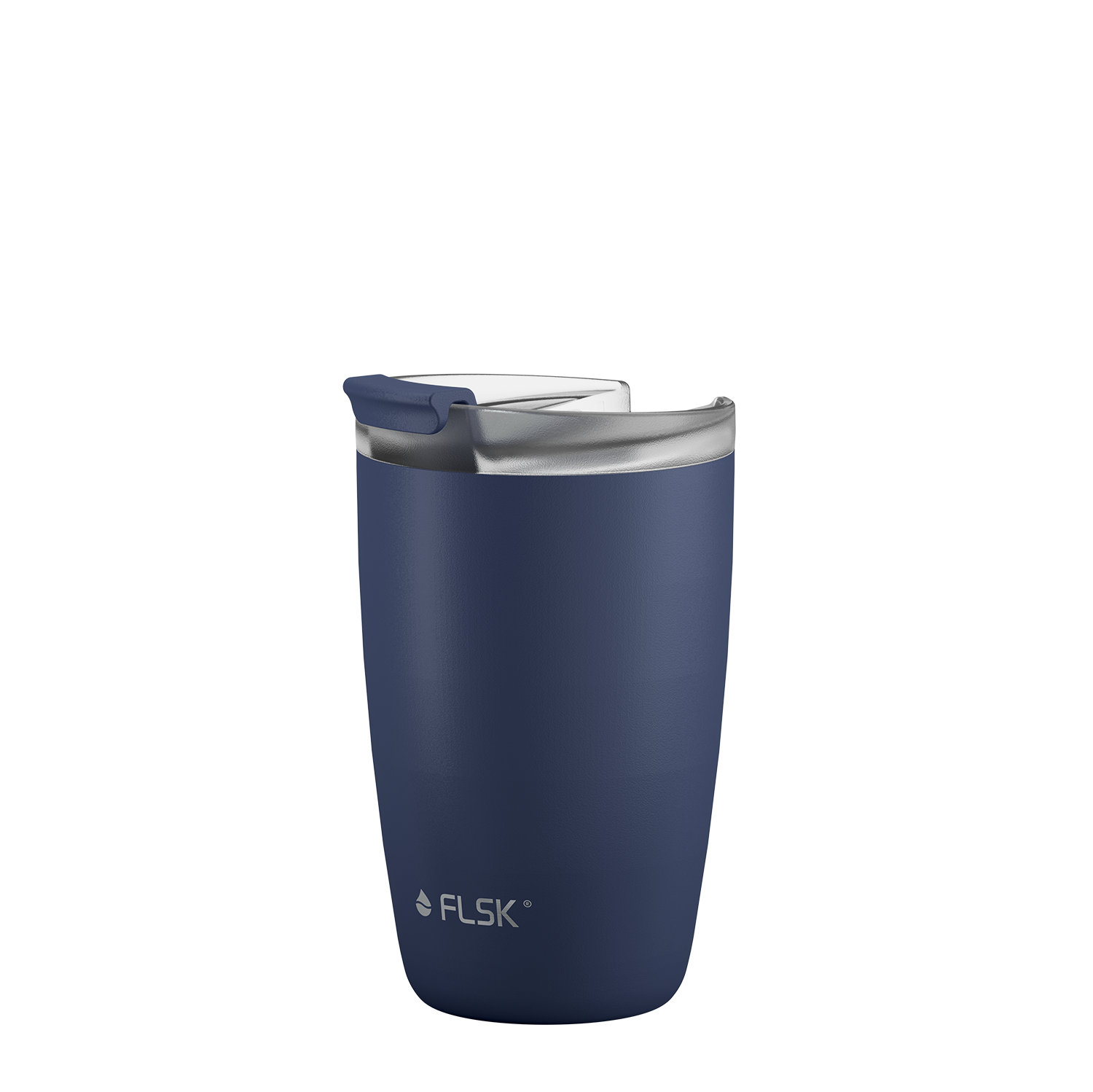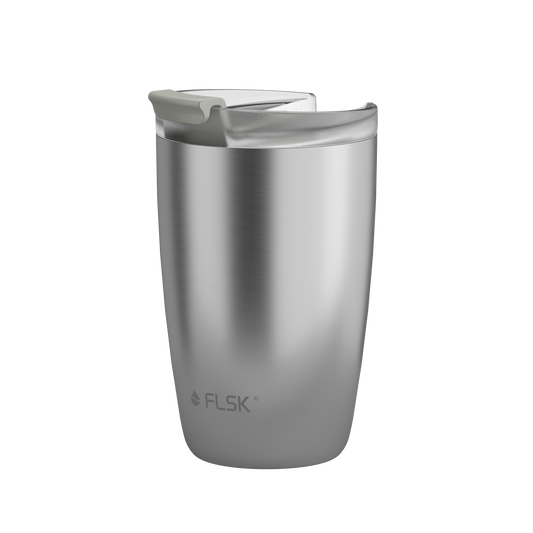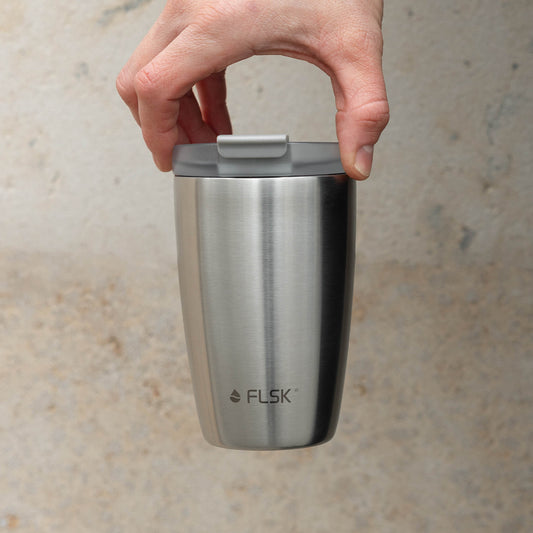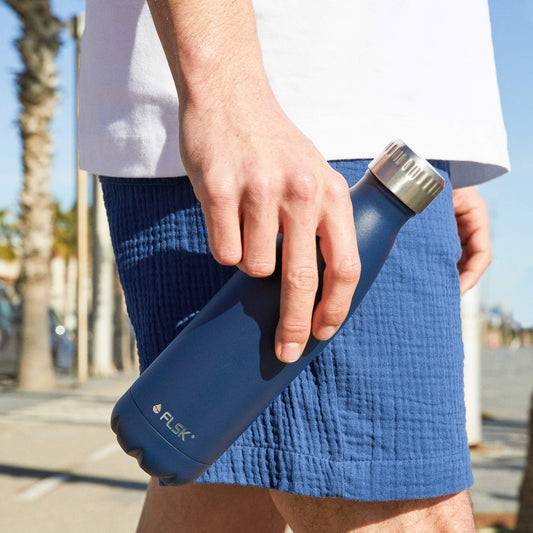Our carbon footprint
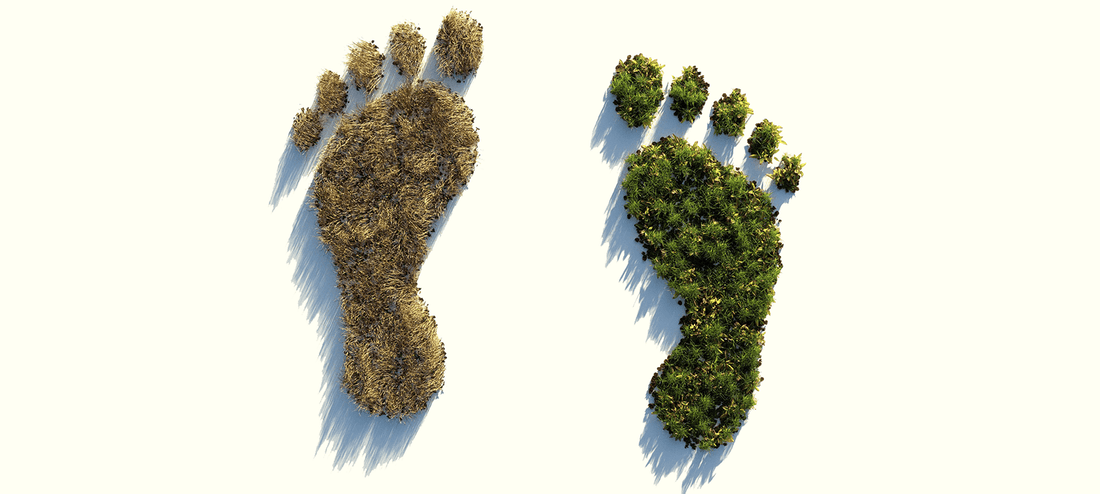
-
We have prepared a comprehensive CO2 balance for 2019.
-
In total, we produced 916 tons of CO2, with the largest share coming from production.
-
Our focus is on long-term emission reduction; we will offset all currently unavoidable CO2 emissions.
"If many small people in many small places do many small things, the face of our earth will change." An African proverb that emphatically demonstrates the power that lies within everyone. And this is especially true in small businesses like ours. Climate change is the most pressing issue of our time. Even if our influence is small in the global context, we want to be part of the change and lead the way toward climate neutrality.
FLSK CUP and muki under the CO2 microscope
The first step: In 2019, together with the sustainability experts at akzente , we closely examined the CO2* emissions generated by our core products. This was done across their entire life cycle – "cradle to grave" in technical terms. Starting with production, through packaging, transport, use, and disposal.** The current calculation is based on Akzente's original estimate, but was carried out by us.

What's clear is that production is responsible for the highest share of CO2 emissions, at over 60 percent. In addition to the high electricity demand, this is due to the resource-intensive steel production process. Product use follows with up to 20 percent. Cleaning FLSK drinking bottles or FLSK coffee mugs requires energy. The lowest-emissions method: Rinse them only with cold or lukewarm water and use our cleaning beads to remove any deposits. Packaging and transport have a less significant impact, accounting for up to 10 and 8 percent, respectively. Product disposal has hardly any impact on our CO2 footprint. This is mainly because we have little control over how our drinking bottles and coffee mugs are treated. Our tip: Extend their lifespan as long as possible. Because by using them for many years, you actively reduce disposable products and emissions. This makes you a climate hero yourself. When the last days are numbered, take your daily companion to the recycling center.
All emissions in view
Our goal is to make FLSK a climate-neutral company. To provide a comprehensive overview, we have therefore created a Corporate Carbon Footprint (CCF). This carbon footprint includes not only FLSK and muki, but our entire product range and all business activities – including business trips and our energy consumption in the office. As a result, we generated 916 tons of CO2 in 2019. This corresponds roughly to the annual consumption of 82 German citizens***.

Our CO2 mission: Reduction before compensation
For us, that's a considerable amount of CO2. To counteract this, our top priority is the medium- and long-term reduction of our emissions. Our greatest leverage lies in increasing the proportion of recycled steel in production. This is a mammoth task that we will be devoting ourselves to in the coming years. We have already achieved small improvements: Since 2020, we have been purchasing green office electricity from the local hydroelectric power plant and have achieved initial savings in transport with the GoodShipping initiative. We will offset all emissions from 2019 that we could not avoid. We are currently identifying suitable offsetting projects. We have high standards for them. Because we want to launch not only an ecological but also a social movement. What's next? We'll let you know!
* Whenever we refer to CO2, we are referring to CO2e . Besides CO2, methane and nitrous oxide, for example, also act as greenhouse gases – but to varying degrees. Converting to CO2 equivalents, or CO2e for short, standardizes the climate impact.
** The larger the FLSK, the higher the CO2 emissions: 350 ml (2.76 kg), 500 ml (3.33 kg), 750 ml (4.41 kg) and 1000 ml (5.16 kg).
*** According to the Federal Environment Agency, every German citizen consumes 11.2 t of CO2 per year.
- Engraveable.
FLSK coffee cup
350 ml · stainless - all natural
- Engraveable.
FLSK drinking bottle
750 ml · midnight
- Engraveable.
